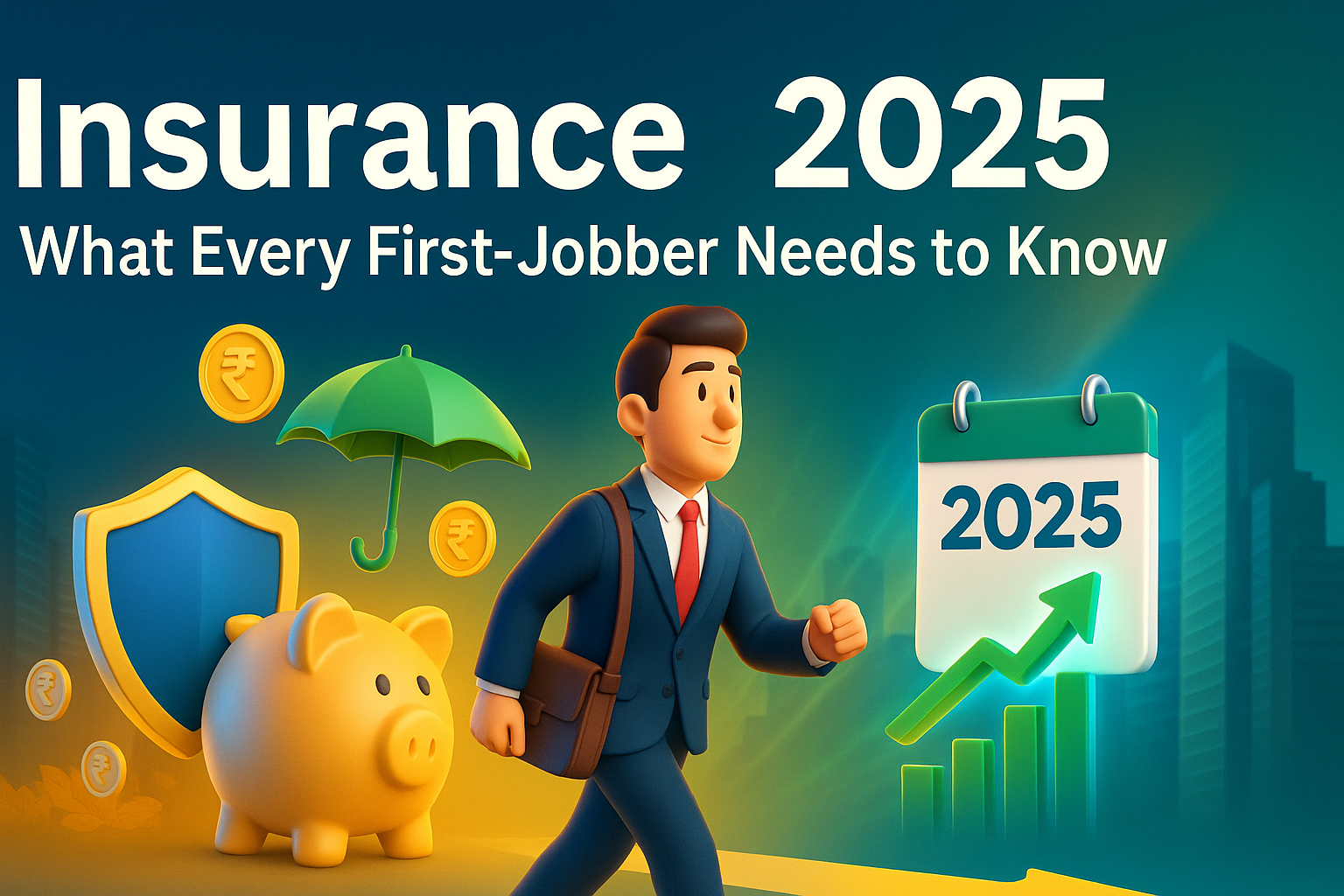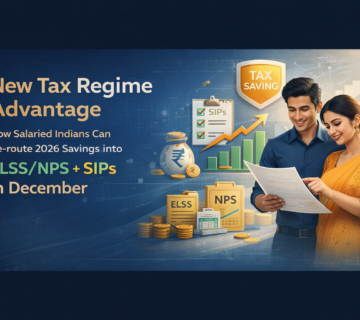At first employment, this is a big step when you take out your first job. All-night exams, internship, and hustle are quite worth it, and you are finally ready to make your first wage. But as soon as you start the sphere of financial freedom, there is one thing that you should know quite early, and that is insurance.
And, in your early twenties or in any other age when you are establishing your first working position, it is not everything that money matters as long as you are creating a secure future, but risk management. We need to discuss the process of why and how Gurgaon and other professionals should reconsider insurance as a financial milestone in 2025.
Why Should First-Jobbers Care About Insurance?
The majority of young professionals nowadays (especially Gen Z) think of insurance as something they will need in the future when they have a house, a family, or have reached their 40s. However, the fact remains that the sooner you get insured, the more financially safe and secure you’ll be in the long run.
Here’s why:
1. Low premiums in your 20s
Purchasing a term life or health insurance policy at the age of 23 is far less expensive than buying one at 33. Insurers consider younger individuals as low-risk since they are usually healthier, which means lower premiums and better coverage options. Also, if you buy at an early age, you will see that the waiting period and other restrictions are low, which is great.
2. Sudden Health Problems
As more and more people become polluted, work-related stress, and are subject to different changes in lifestyles, even young professionals are not above attacks by medical problems. The unexpected visit to a hospital can take all your savings away or leave you in undesirable debt, and, therefore, early insurance is a good safety net.
3. Uncertainty Job Market
With an insurance cushion, you are sure that the family will not be faced with any kind of issues linked to money during downtime. This way, you will be able to maintain a stable family whenever you are not at work due to a career break or other health complications. All this is key to ensure that you and your family stay safe.
4. Futuristic policies
By 2025, more insurers are expected to offer flexible, tech-driven policies. All these are mainly designed to appeal to millennials and Gen including coverage for mental health, digital theft, and other modern-day risks. This will ease the process of application and will ensure that policies can be managed from home.
5. Better Portfolio
When you start by applying for the insurance as a new job-seeker, you start building your portfolio. The idea is simple. This will help you to invest a certain amount from your salary in the safety of life and health. The rest you can plan on building wealth, and others can focus on expenses.
Health Insurance Is Non-Negotiable—Even with Corporate Coverage
The majority of employees at their first place of employment think that the health insurance provided by their company is sufficient. It’s a myth. Corporate policies usually offer limited coverage (₹2–5 lakh), come with restrictions (such as excluding parental coverage), and cease immediately when you change jobs or resign.
In Gurgaon, where the quality of healthcare in the private sector is excellent but expensive, it is vital to have an individual health insurance policy. When looking for the most suitable health insurance policy in Gurgaon, make sure it includes the following features:
- Flexibility of personal and family cover
- Hospital tie-ups with top hospitals in Gurgaon (e.g., Medanta, Fortis) that support cashless systems
- Mental health coverage
- Daycare, OPD cover, and maternity benefits
- Easy addition of a family member, like a spouse or child
- Lifetime disease coverage and no-claim bonuses
Your own policy ensures that even when you are between jobs, starting a business, or freelancing, you remain fully protected.
Pro Tip: You can find the best health insurance company in Gurgaon for your needs. You can do this, not just by comparison policies to find the one with the cheapest premium. But you can also do this by comparing the top providers in the city.
Term Insurance: Because Life Is Unpredictable
Nothing is wiser than term insurance if you are the sole earner in the family or intend to take care of your parents.
This is the reason why young earners have to choose term insurance at a young age:
- The lowest premiums are recorded between 21 and 30 years.
- You are allowed to fix policies of 30–40 years at a constant premium.
- In case of your unfortunate demise, your family is given a sizeable amount of money (₹50 lakh and above) to take care of debts or even daily expenses.
A number of insurers are also issuing digital term insurance plans in 2025 that are hassle-free, paperless, and offer quick approvals. Such plans go to the extent of having riders such as accidental disability, critical illness, and waiver of premium. Though quite a low number of people still go for the term plan, yet it is important to note that this is what you need today.
How to Get Started: A Simple Checklist for First-Jobbers
Your first job is a great achievement; however, it is also the best opportunity to establish a healthy financial base. The following is a basic list of tasks that will help you get on the right track:
- Open a Salary and Savings Account: Select a bank that offers easy online accessibility, a zero-balance salary account, and automatic savings options.
- Create a Monthly Budget: Monitor your earnings and spending. You must aim to save at least 25% of your salary. Then you must allocate the same amount toward investments. Rest can be for expenses and an emergency fund.
- Buy a Health and Term Insurance: You should not count only on the insurance forthcoming by your company. Get individual cover to remain insured in times of job shift or emergencies.
- Establish an Emergency Fund: Create a fund of three to six months of living expenses to deal with any unforeseen circumstances.
- Start investment at an early age: Consider a low-risk like mutual funds or SIPs to save money for the future.
- Learn Taxes and Deductions: Know TDS, EPF, and income tax slabs to so as to be able to manage your take-home pay.
- Check and Rate Your Credit Score: Your first credit card can be used responsibly, which will help you create a good financial history.
Your first employment is not only about earning, it’s about learning how to manage, secure, and grow what you earn. By ensuring that you keep track of all the facts, you ensure that you not just select the right policy but also the one that can be helpful in the future. A plan that grows with you and your family is what you need in the uncertain times of today.
The Bottom Line
It is exciting to earn your first salary, but the most intelligent thing to do is not to spend it on a gadget or a new subscription. It is establishing a platform of economic stability and tranquillity.
Start early. Stay protected. And not least- Gurgaon may be the corporate capital of India, but it is also the most costly city to receive healthcare in. Insure yourself when the luck is on your side.
Get Ready to Have your Future, the Smart Way? The Wealth Escalator by JRG Financials assist first jobbers and young employees to make informed financial decisions – starting with the best insurance plans in Gurgaon to long-term wealth building.
FAQs
- Why do I need insurance if my company already provides health coverage?
The health plans provided by most of the companies cover limited (usually ₹2-5 lakh) and usually do not cover parents or dependents. They also terminate with your resignation or change of job. The benefit of having a personal policy is that you are always covered despite whether you are working or not.
- What kind of first jobber first insurance?
Begin with term insurance and health insurance. The health insurance takes care of medical costs, whereas term insurance will take care of the finances of your family should you pass away prematurely.
- Is insurance really affordable for someone in their 20s?
Yes. The lowest premiums are those that fall within the 21-30 age group, as insurers perceive the young age as one that is not risky. Purchase of early locks at low, stable premiums for a number of years, with better long-term benefits.
- What are digital insurance plans, and are they reliable?
There is no paperwork in digital terms and health insurance plans in 2025, which are fast and secure. The majority of the major insurers provide instant approvals, easy renewals, and riders (such as critical illness or accident cover). They are supported by the IRDAI regulations, and hence, totally safe.
- Should I have corporate and personal health insurance?
Yes. The corporate insurance is a temporary security system, and the individual insurance is your long-term protection. A combination of the two offers wider and more reliable coverage.



